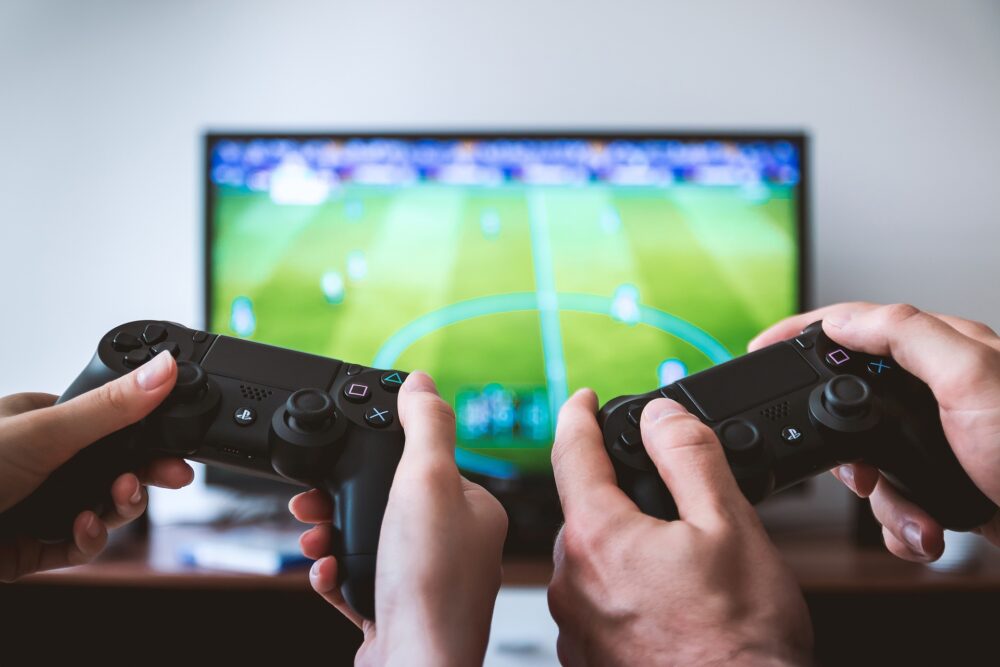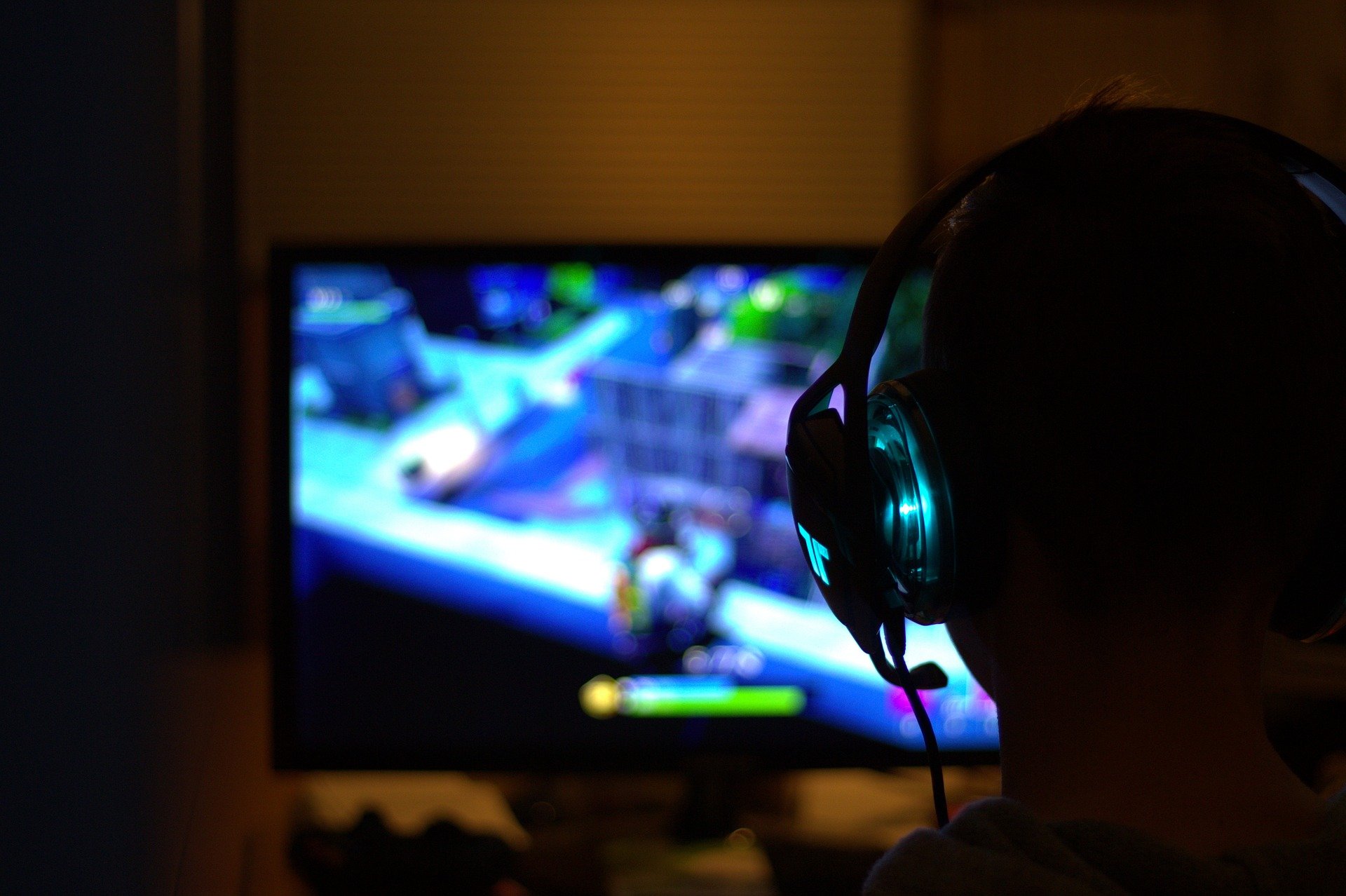Today, online entertainments take an impressively huge part of our lives – especially in 2020, when the offline events and entertainments have been considerably limited. Being unable to relax and socialize in a usual manner, most people start seeking online entertainment, and this is also true for children and teenagers.
Teenagers are especially fond of various kinds of video games, both online and on various gaming gadgets. And while video games may not be the worst option for pastime, the parents should be particularly attentive to the gaming behaviors, habits, and patterns their child shows. The point is, video gaming can cause gaming addiction and lead to compulsive behavior, and nowadays, when exposure to video games is especially high, more children can display addictive behavior.
What Is Gaming Addiction

As any other addiction, gaming addiction is not caused by higher than average exposure to the games on its own. One will not develop a gaming addiction only because they play games more often, or for longer periods than other children. However, children who play more than others, on average, are more likely to already have a gaming addiction.
In contrast to substance abuse, gaming addiction is mental addiction, but the substance is still involved, although nothing is actually consumed. The point is, the person gets addicted to the euphoria, rush, and excitement they feel when they play, and these emotions, in their turn, are caused by a mix of hormones produced by the player’s brain. This way, a gamer gets addicted to the hormones produced by their own brain, when the brain is triggered by a video game.
As a rule, this is not one particular game, although separate people can react more to certain categories of games. Also, if the person is predisposed to developing a gaming addiction, they can develop it literally from the first few tries, and the gaming experience does not matter much; again, longer playing does not cause addiction, but addiction causes longer playing.
Main Causes
Longer playing and increased exposure to games are not direct causes of addiction, but what is? There are three main groups of direct causes, and if your kid likes video games, you should keep these causes in mind.
The first cause is biological. Most people are predisposed to some kind of addiction, be it substance abuse, binge eating, or gaming addiction. Different brains are triggered by different factors, and scientists even believe that biological predisposition to addictions can be genetically inherited one. Biologically caused addictions are extremely powerful, hard to prevent, not easy to take control of, and take considerable time and efforts to manage.
The second cause is psychological, and such addictions are based on behaviours caused by erroneous beliefs. For example, if a teenager has no friends at school, but they manage to find common grounds with fellow players online, they will continue to play video games, because they will believe they have friends there. Psychologically caused addictions are easier to manage and prevent.
The third cause is environmental. On the one hand, the person’s environment may be so boring, or so hostile, that video games (or other addictive behavior) can be the only mental escape possible. Or, if the person’s close social circle plays video games, the person will also continue playing, in order to be accepted to the circle.
Symptoms
Symptoms of compulsive gaming can differ, but there are still some general signs that close family can notice in a gaming teenager:
- the child often talks about their games
- they have few other hobbies and activities except video games
- the child tries to escape into gaming when they are sad, angry, or bored
- the child becomes anxious or aggressive when they cannot play games as usual
- playing becomes a priority among other daily activities; the child forgets to do things because they are playing
- the child is reluctant to reveal details of their playing
- the child starts seeking financial help to provide their playing
The symptoms are at the same time negative consequences. The teenagers can become depressed or aggressive, quit school or hobbies, etc. This is why parents should pay double attention to their kids’ gaming behaviors, and make sure that the children are socialized, take care of their health, and have entertainment besides gaming.
Video Game Loot Boxes Are Gamble
According to recent research, many video games include the elements of gambling. Firstly, some video games include casino houses in their plot, and many gamers actually spend lots of time at these in-game casinos playing slots or table games. Secondly, many video games feature so-called loot boxes players can buy. The concept behind the loot box is that the player buys one without knowing what’s inside. Sometimes, one can get something really valuable for the game, but more often, the items in the box are not really useful.
Some fans argue that, since items in the loot boxes are not cash, and have no real monetary value, buying loot boxes cannot qualify as gambling. However, as the experts rightfully point out, these boxes are purchased for real money, and not the game currency earned within the plot, plus the player has no clue what they buy, hoping to get something nice. This is gambling, and therefore it should be treated as gambling – but it is not.
Legislation Issues
Video games, on the other hand, only mark their products as 12+, 16+, etc., but enforce no real mechanism for protection of minors from real money gambling – let alone from gambling or gaming addiction. For example, minors are not restricted from playing at an in-game casino house in GTA, because this is a video game, not a casino platform. Also, video games feature no Responsible Gaming policies, and no self-restriction tools – again, in contrast to online casino sites. This way, video games can be considered far less regulated, and therefore posing lots of risks for unprotected teenagers.
Final Thoughts
While gaming and gambling addiction are no fun, and parents may feel an urgent need to ban all gaming altogether, such measures are rarely successful. Instead, parents should pay time and attention to their teenagers, and make sure they provide a friendly environment.





